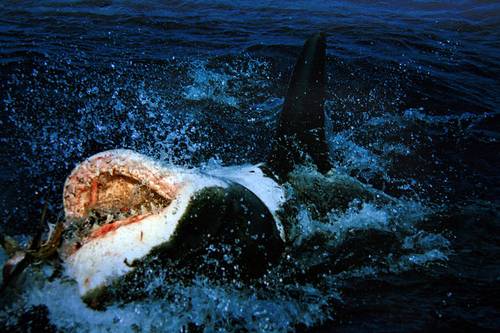Great White Sharks Live Far Longer Than Supposed
Great white sharks, top predators throughout the world's ocean, grow much slower and live significantly longer than previously thought, according to a new study led by the Woods Hole Oceanographic Institution (WHOI).
In the first successful radiocarbon age validation study for adult white sharks, researchers analyzed vertebrae from four females and four males from the northwestern Atlantic Ocean. Age estimates were up to 73 years old for the largest male and 40 years old for the largest female.
“Our results dramatically extend the maximum age and longevity of white sharks compared to earlier studies,” said Li Ling Hamady, MIT/WHOI Joint Program student and lead author of the study. “Understanding longevity of the species, growth rate, age at sexual maturity, and differences in growth between males and females are especially important for sustainable management and conservation efforts.”
For this study, researchers took advantage of radiocarbon produced by thermonuclear device testing done during the 1950s and 1960s. Radiocarbon mixed from the atmosphere into the ocean, and was incorporated into the tissues of marine organisms living during that time period. The rise in radiocarbon gave researchers a specific spot in time pinpointed in the vertebra layers, which can be used as a “time stamp” to help determine the age of an animal.
“This research demonstrates the power of applying cutting-edge techniques in isotope geochemistry to answer fundamental questions in ocean ecology,” said co-author Simon Thorrold, a biologist at WHOI and Hamady’s Ph.D. advisor. "The radiocarbon time stamp in white shark vertebrae provides irrefutable evidence of white shark longevity that had proved to be impossible to verify using traditional age estimation methods.”
Full information on the research is available at: http://www.whoi.edu/news-release/LongevityWhiteSharks














 December 2025
December 2025



